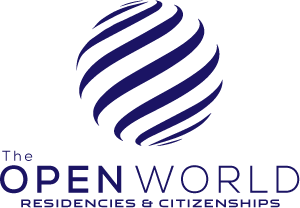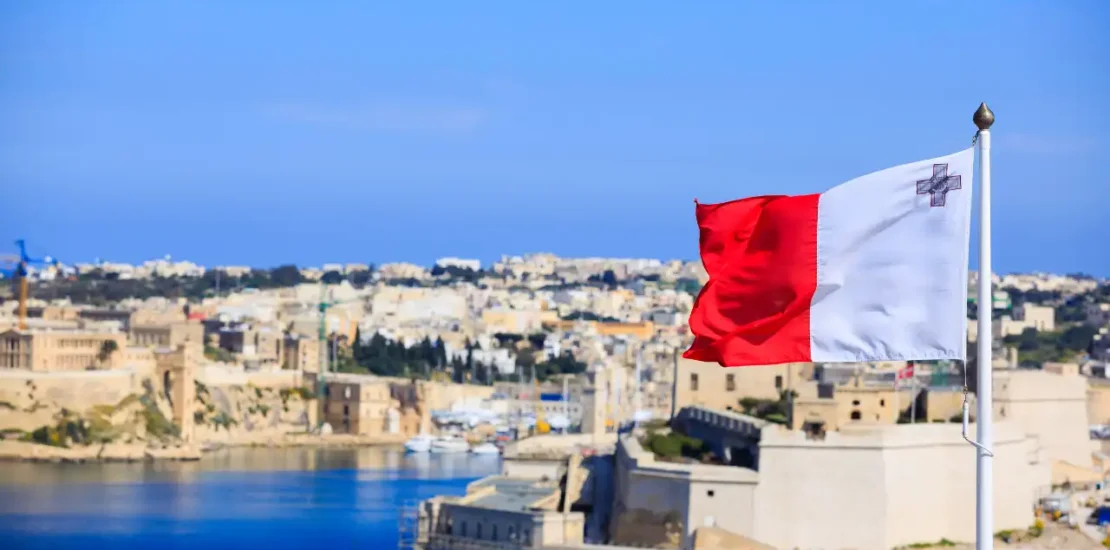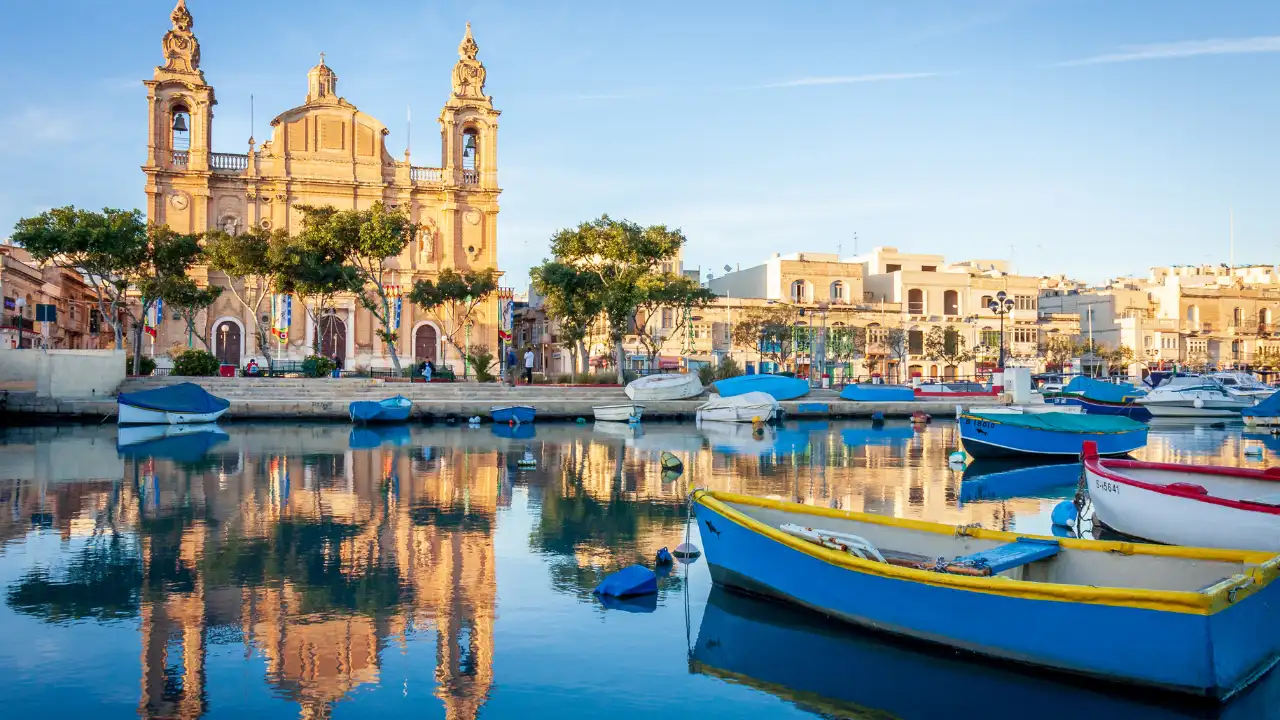Dreaming of seamless travel across Europe, access to top-tier healthcare, and a future-proof second passport? For global investors, entrepreneurs, and high-net-worth individuals, citizenship by investment isn’t just a privilege—it’s a strategy. Among the handful of countries that offer it, Malta stands out as a golden gateway to Europe.
Whether you’re looking for lifestyle advantages or stronger international mobility, Malta’s citizenship program offers a unique blend of stability, opportunity, and prestige. But what exactly makes it one of the best in Europe?
Why Malta’s Citizenship Program Is One of the Best in Europe
Malta’s program ranks among the best because it offers EU citizenship, visa-free access to over 180 countries, and a stable legal and economic framework backed by strong due diligence. With a clear path to citizenship through investment, it appeals to those seeking global mobility, legacy planning, and secure access to European benefits.
What Is the Malta Citizenship by Naturalization Program?
Malta’s Citizenship by Naturalization for Exceptional Services by Direct Investment allows eligible individuals to obtain Maltese citizenship through a structured investment process. It’s a legal route for high-net-worth applicants who contribute to Malta’s economic development through a government fund donation, real estate investment, and residency. The process usually takes 12–36 months, depending on the residency duration and compliance checks.
A few years ago, I worked with a tech founder from South Africa who was looking for a secure European base for both personal and professional growth. After months of research, he settled on Malta—not just for its EU access, but because of its political stability and efficient naturalization process. What impressed him most wasn’t just the ease of travel, but how Malta’s program gave him the legal clarity and peace of mind he couldn’t find elsewhere. That decision allowed him to expand his startup into new markets with confidence.
Key Benefits of Obtaining Maltese Citizenship
Malta’s citizenship program offers more than just a second passport—it opens doors to global mobility, security, and legacy planning. Here are some of the key advantages:
- Visa-Free Travel: Gain access to over 185 countries, including the Schengen Area, the UK, and Canada—ideal for entrepreneurs and frequent travelers.
- EU Rights: As an EU citizen, you can live, work, study, or retire in any European Union country.
- Dual Citizenship Allowed: Malta permits dual or multiple citizenships, allowing you to retain your original nationality.
- Family Inclusion: Your spouse, children, and in some cases, dependent parents and grandparents can be included in one application.
- Tax Efficiency: Malta follows a domicile-based taxation system, meaning no tax on worldwide income if you’re not domiciled there.
- High Quality of Life: Mediterranean lifestyle, English-speaking population, low crime rates, and excellent healthcare and education infrastructure.
For many of my clients, the most striking benefit is peace of mind, knowing they have a stable legal status in the EU, especially in uncertain geopolitical times. One investor from Lebanon told me that holding Maltese citizenship during the global pandemic gave him a sense of control he hadn’t felt in years.
Who Is Eligible for the Malta Citizenship Program?
Eligibility for Malta’s citizenship by naturalization program is designed to ensure that applicants are of sound character, financially stable, and committed to contributing to Malta’s economy. To qualify, you must:
- Be at least 18 years old
- Have a clean criminal record and pass a thorough background check conducted by the Maltese authorities
- Fulfill the investment requirements, including contributions to Malta’s National Development and Social Fund
- Establish legal residency in Malta for either 12 or 36 months before applying for citizenship
- Prove a legitimate source of funds and income
- Hold global health insurance coverage
One client from India, a biotech entrepreneur, almost gave up on the idea after being overwhelmed by compliance requirements in another country’s program. But after discovering Malta’s transparent structure and expert advisory ecosystem, he was able to meet all criteria and secure citizenship in under two years, with his entire family included. His advice to others? “If you’re serious and prepared, Malta makes it possible.”
Investment Requirements and Financial Thresholds
To obtain Maltese citizenship through the naturalization program, applicants must make a series of government-approved investments. These are designed to support Malta’s economic and social development, while ensuring applicants have the financial capacity to contribute meaningfully.
Here’s a breakdown of the required commitments:
1. Government Contribution:
-
- €600,000 for a 36-month residency period
- Or €750,000 for a fast-track 12-month residency route
- An additional €50,000 per dependent is included in the application
- €600,000 for a 36-month residency period
2. Real Estate Investment (Choose one):
-
- Purchase a property worth at least €700,000 and retain it for 5 years
- Or lease a property for a minimum annual rent of €16,000 for 5 years
- Purchase a property worth at least €700,000 and retain it for 5 years
3. Philanthropic Donation:
-
- Donate at least €10,000 to a registered Maltese nonprofit organization or NGO
These figures might seem substantial, but for many high-net-worth individuals, they’re a strategic investment in global mobility and future security. I once advised a crypto investor from Singapore who was hesitant about locking funds into real estate. But after understanding the appreciation potential in Malta’s coastal zones and the security of EU citizenship, he considered it one of the most “liquid-feeling” long-term decisions he ever made.
Timeline and Application Process
Malta’s citizenship by naturalization program follows a structured, government-regulated pathway. Depending on your chosen residency duration (12 or 36 months), the full process typically takes 1 to 3 years.
Here’s how it works:
- Initial Due Diligence & Residency Application
- Submit a residency application and complete a biometric appointment in Malta.
- Receive a residence card and begin your physical presence requirement (12 or 36 months).
- Submit a residency application and complete a biometric appointment in Malta.
- Preparation of Citizenship Application
- During your residency, gather required documents, financial proof, health insurance, and make qualifying investments.
- Malta’s Community Malta Agency conducts a deep due diligence process.
- During your residency, gather required documents, financial proof, health insurance, and make qualifying investments.
- Submission of Citizenship Application
- Submit a full citizenship application once the minimum residency period has passed.
- The application is evaluated under a four-tier due diligence.
- Submit a full citizenship application once the minimum residency period has passed.
- Approval in Principle
- If successful, you’ll receive a Letter of Approval in Principle.
- At this point, complete the remaining investment contributions.
- If successful, you’ll receive a Letter of Approval in Principle.
- Oath of Allegiance & Passport Issuance
- After fulfilling all requirements, applicants take the oath of allegiance.
- Citizenship certificates and Maltese passports are issued.
- After fulfilling all requirements, applicants take the oath of allegiance.
A family I worked with from Kazakhstan was particularly impressed by how streamlined the process felt. Despite initial concerns about delays, they completed the 12-month route with no surprises—thanks to working with a licensed advisor and staying organized from day one.
What Makes Malta’s Program Stand Out in Europe?
Several European nations offer golden visas or residency-by-investment schemes, but very few grant full citizenship with a clear and legal path. Malta’s program distinguishes itself in several key areas:
- EU Citizenship, Not Just Residency: Unlike programs in Portugal or Greece that only grant long-term residence, Malta offers full EU citizenship rights—including the right to vote and live in any EU country.
- Strong Due Diligence Standards: Malta is known for one of the strictest vetting processes in Europe, earning credibility and trust in international circles.
- Speed and Structure: With options for both 12- and 36-month timelines, the process is faster and more predictable than naturalization routes in most other EU countries.
- English-Speaking, Business-Friendly Environment: Malta’s widespread English fluency, stable legal system, and welcoming financial infrastructure make it ideal for investors and families alike.
- Attractive Tax System: Malta’s non-domicile tax regime allows residents to benefit from a favorable system without global income taxation (under specific conditions).
I recall a client from Egypt who was considering both Portugal and Malta. His deciding factor? “Malta treated me like a future citizen from day one, not just a resident parking capital,” he said. For him, the transparency, legal certainty, and eventual full citizenship sealed the deal.
Common Pitfalls and How to Avoid Them
While Malta’s citizenship program is well-structured, it’s not without complexities. Many applicants run into issues simply because they underestimate the administrative and legal diligence required. Here are some of the most common mistakes and how to steer clear of them:
- Submitting Incomplete or Inaccurate Documentation
One of the fastest ways to face rejection is by failing to provide a full paper trail for income sources, asset declarations, or identity records. Be thorough, accurate, and transparent in every form. - Working with Unlicensed Agents
Only licensed agents registered with Malta’s Community Malta Agency can legally process applications. Working with unauthorized intermediaries can delay or derail your case entirely. - Ignoring the Residency Requirement
Some applicants fail to fulfill their physical presence obligations, which can invalidate the entire process. Stay engaged with your residency milestones. - Underestimating Total Costs
Some overlook additional expenses—legal fees, document translations, real estate taxes, or government processing charges. Always calculate the total cost of ownership. - Delaying Your Application
With increasing scrutiny from the EU and global institutions, the window for investment-based citizenship could close or tighten at any time. Acting early protects your opportunity.
I once had a client from Turkey who initially approached the process casually, assuming it would be just another investment transaction. After his first submission was delayed due to inconsistent bank records, we restarted with a meticulous document review, and his approval came through smoothly on the second attempt. His lesson? “Respect the process. It’s not complicated if you treat it seriously.”
Taxation Implications for Maltese Citizens
One of Malta’s most appealing features, especially for global investors, is its favorable tax regime. While becoming a Maltese citizen does open access to the European market, it doesn’t automatically mean you’ll be taxed on worldwide income.
Here’s how taxation works for Maltese citizens:
- No Tax on Worldwide Income (If Non-Domiciled)
If you are not domiciled in Malta and don’t remit income to Malta, you’re not taxed on foreign income or capital gains. This is known as the remittance basis. - No Wealth, Inheritance, or Gift Taxes
Malta does not impose taxes on worldwide wealth, inheritances, or gifts, making it ideal for long-term estate planning. - Standard Taxation on Malta-Sourced Income
Any income generated within Malta (such as rental property or local business operations) is subject to normal income tax rates. - Corporate and Investment-Friendly
Malta offers tax refund mechanisms for foreign investors, potentially reducing corporate tax rates to effective levels around 5–10%, depending on structure.
One of my clients, a fintech investor from Hong Kong, was particularly concerned about tax exposure. But once we worked with a Malta-based tax advisor, he realized that as long as he didn’t remit offshore income to Malta, his global earnings would remain untouched. That clarity helped him confidently structure his holdings while maintaining compliance.
Recent EU Court Rulings & Impact on Citizenship by Investment
On April 29, 2025, the European Court of Justice (ECJ) ruled that Malta’s Citizenship by Investment program violated EU law. The court determined that granting citizenship in exchange for financial investments, without requiring a genuine connection to Malta, undermines the principles of sincere cooperation and mutual trust among EU member states.
Key Points of the Ruling:
- Violation of EU Law: The ECJ concluded that Malta’s program commodified EU citizenship, contravening the foundational values of the Union.
- Requirement for Genuine Link: The court emphasized that a genuine link between the applicant and the country is essential for the acquisition of citizenship, which was lacking in Malta’s scheme.
- Impact on Applicants: As a result of the ruling, Malta is required to terminate its Citizenship by Investment program. This decision affects both current applicants and those considering this pathway to EU citizenship.
Implications for Prospective Applicants:
For individuals seeking EU citizenship through investment, this ruling signifies a shift in the landscape. While Malta’s program is being discontinued, other avenues for residency and citizenship in the EU remain, albeit with stricter requirements and longer timelines. It’s advisable for prospective applicants to consult with legal experts to explore alternative pathways that align with the new regulatory environment.
Alternatives If Malta Citizenship Becomes Unavailable
With the recent EU court ruling halting Malta’s Citizenship by Investment program, many prospective applicants are now seeking alternative routes for global mobility and European access. Fortunately, several other countries offer robust residency or citizenship-by-investment programs, though most come with longer timelines or more stringent criteria.
Here are the top alternatives:
- Portugal Golden Visa
Offers residency through real estate, fund investments, or job creation. While not a direct path to citizenship, it allows naturalization after 5 years with minimal stay requirements. - Greece Golden Visa
Grants residency for property investments starting at €250,000. Citizenship is possible but requires long-term residence and integration. - Spain Investor Visa
Similar to Portugal, Spain offers residency with a path to citizenship after 10 years—ideal for those seeking stability in a major EU economy. - Austria and Germany (Exceptional Cases)
While these countries don’t offer citizenship-for-investment directly, high-impact economic contributors (such as founders or inventors) may be eligible under special provisions. - Caribbean Citizenship Programs (e.g., St. Kitts & Nevis, Antigua & Barbuda)
These offer fast-track citizenship (3–6 months), visa-free access to over 140 countries, and attractive tax regimes, though they don’t provide EU access.
Ready to Take the Next Step?
At The Open World, we specialize in guiding individuals and families through the process of obtaining second citizenship and residency. Based in Dubai, UAE, we offer strategic, government-approved solutions tailored to your goals.
Whether you’re considering Malta, Portugal, or the Caribbean, our experienced team provides end-to-end support with clarity, confidentiality, and global insight.
Contact us today to schedule your consultation and explore the best options for your future.
Final Thoughts: Is Malta the Right Choice for You?
Malta has long stood out as a premier destination for global citizens seeking EU access, financial security, and a high standard of living. Its citizenship program combined robust due diligence with real opportunity, making it a strong contender for investors who value transparency, safety, and long-term mobility.
However, in light of the 2025 EU court ruling, the program’s future is uncertain. If you’re still considering Malta, the best course is to consult with a licensed advisor who can guide you based on current legal interpretations and future alternatives.
Ask yourself:
- Are you seeking immediate global mobility, or are you willing to take a longer route through residency?
- Is your priority EU access, tax efficiency, or family legacy?
- Would Caribbean citizenship serve your travel and asset protection needs just as well?
Each investor’s situation is unique. I’ve seen families, entrepreneurs, and professionals all find different paths—some through Malta, others through Portugal or St. Kitts. What matters most is not just the destination, but aligning the program with your personal, financial, and legacy goals.
Frequently Asked Questions
Can I pass Maltese citizenship to my children?
Yes. Once granted, Maltese citizenship is hereditary and can be passed on to future generations, offering long-term benefits for your family.
Is dual citizenship allowed in Malta?
Absolutely. Malta recognizes dual and multiple citizenships, meaning you can retain your original nationality without renouncing it, subject to your home country’s laws.
Can I include family members in my application?
Yes. You can include your spouse, children (under 29), and dependent parents or grandparents, provided they meet eligibility and financial dependency criteria.
Will I need to live in Malta permanently?
No. While residency is required for either 12 or 36 months, depending on your route, there is no ongoing obligation to reside in Malta after naturalization.
How much does the process cost in total?
The total investment typically ranges from €850,000 to €1 million+, depending on family size, real estate choice, and legal fees.
Many clients have told me that finding clear answers to these questions was a turning point. “Once I saw the structure and clarity Malta offered,” one investor from Pakistan shared, “I knew it wasn’t just a passport—it was a smart, long-term decision.”





